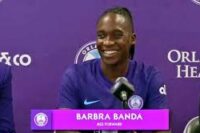Former Minister of Justice Mr Wynter Kabimba State Counsel last week raised a thought provoking observation regarding the complexity of prosecuting white-collar crimes in Zambia, especially among top government officials.
He was defending Lusaka Province Minister Honourable Bowman Lusambo who had come under attack for humiliating traffic police officers who were caught taking bribes from erring motorists.
In his comment, Mr Kabimba observed that open corruption, like the one involving the police officers, was easier to prosecute, but called for the establishment of a special unit under the DPP’s office to prosecute white-collar crimes which he said are often too complicated for inexperienced prosecutors.
“What the police officer does along the road is open corruption crime. So it is easier for you to catch that one than it is to catch a permanent secretary or a minister in government. And that is why my view is that if we are going to fight corruption at the highest level, which manifest itself in terms of white-collar crime, we need a specialised unit to prosecute these cases. Some of the acquittals that we see in the subordinate court are not because people are not guilty. It is because the people that are prosecuting and the people that are investigating have not been trained enough in the area of white-collar crime, they do not have the professional competence to prosecute white-collar crime,” said Mr Kabimba.
“You can’t get a police officer who is trained to prosecute a traffic offence and take him to go and prosecute an offense of embezzlement or misappropriation of funds under the Auditor General’s report. Or a state advocate who has just come out of ZIALE and give her a complicated case of fraud. I think we must invest money in training a specialised unit in the police service and in the DPP’s chambers to prosecute white-collar crime.”
We would like to agree with Mr Kabimba’s observation but we stand to disagree with his solution. The problem we have in this country is not the lack of capacity to prosecute crimes; it is the desire by individuals in authority to shied criminals because they are beneficiaries of these criminal acts. That is why we are witnessing a corruption fight that is targeting the weak and vulnerable.
Unless the operating guidelines under the DPP’s mandate have been changed, what we know is that the Director of Public Prosecutions is the one who assigns state advocates to prosecute cases depending on the complexity of the matters at hand. As such, the DPP reserves the right to personally prosecute white-collar crimes which are too complicated for inexperienced advocates who may be fresh from college.
This is the reason why former DPP Mutembo Nchito State Counsel personally handled the corruption case involving former president Rupiah Banda because he felt it was too complicated for a junior prosecutor. Mutembo knew that in order to succeed in the fight against corruption, he needed to avail himself and a selected team of top State advocates to deal with top white-collar crimes.
It was this desire to deal with white-collar crimes that actually cost Mutembo his job. What we saw was a collusion by beneficiaries of white-collar crimes giving orders to police to physically drag the country’s DPP out of office through an illegal arrest. The fact that Mutembo is still out of office today, gives us proof that perpetrators of white-collar crimes are above the law in this country.
What we saw next was an appointment of Mutembo’s replacement in the name of Lillian Shawa Siyunyi State Counsel, who went on to lose all the key cases that her predecessor had made so much progress on.
Mr Kabimba is not only a reputable State Counsel, he is also a well-connected politician and we believe he knows what transpired in the Rupiah Banda case. By now, Mr Kabimba should know of some shocking submissions made by DPP Siyunyi in cases which her office has won in the subordinate court and in the High Court, and when the matter goes to the Supreme Court, she says she does not support the convictions. What kind prosecutor does that? Can you defeat white collar-crimes with that level of professionalism?
We can add that, in a normal country where laws are respected, DPP Siyunyi would be losing sleep over developments happening in South Africa where that country’s Constitutional Court has nullified the appointment of the Chief State Advocate who was hired under the same circumstances as her.
But DPP Siyunyi can’t lose sleep over what is happening in South Africa because she knows she is safe; the people who appointed her will see her through all the tribulations that might threaten her job. So then, how can a country succeed in fighting white-collar crimes if perpetrators influence judges’ decisions?
What is worse is that this habit of protecting culprits stretches beyond white-collar crimes; it is also common in open corruption cases such as the one referred to by State Counsel Kabimba.
We can challenge Mr Kabimba today to call Inspector General of Police Mr Kakoma Kanganja and ask him if those police officers who were caught in the act have taken plea in any court of law in Zambia.
In fact, we can bet anyone that those officers were never arrested, let alone charged for corruption. This is for the simple reason that there are many bwanas in the police hierarchy who benefit from the crimes that those officers were caught committing. So they will deliberately complicate this matter in order to protect the culprits.
Again, we can assure Mr Kabimba that the reason why those traffic officers will never be prosecuted is not because there are no competent prosecutors. It is because protecting criminals is big business in Zambia. Those tasked to fight corruption are getting rich by, not only protecting criminals, but also helping them commit more crimes.
So in our opinion, there is nothing that a specially trained unit under the DPP’s office can do which the DPP herself is currently failing to do. She has the power and she knows the culprits, but her legal backing cannot overturn the will of the political office that appointed her. Just like the name suggests, white-collar crimes are extremely complicated, and as such, accomplices of these crimes are usually too powerful, influential and sensitive to criticism. But the truth has to be told.
Our beloved DPP is a product of white-collar crimes. We say this because her predecessor Mutembo Nchito was removed by acts of white-collar criminals. It is because her predecessor was removed from office that Ms Siyunyi became our DPP. That makes her a product of white-collar crimes.












